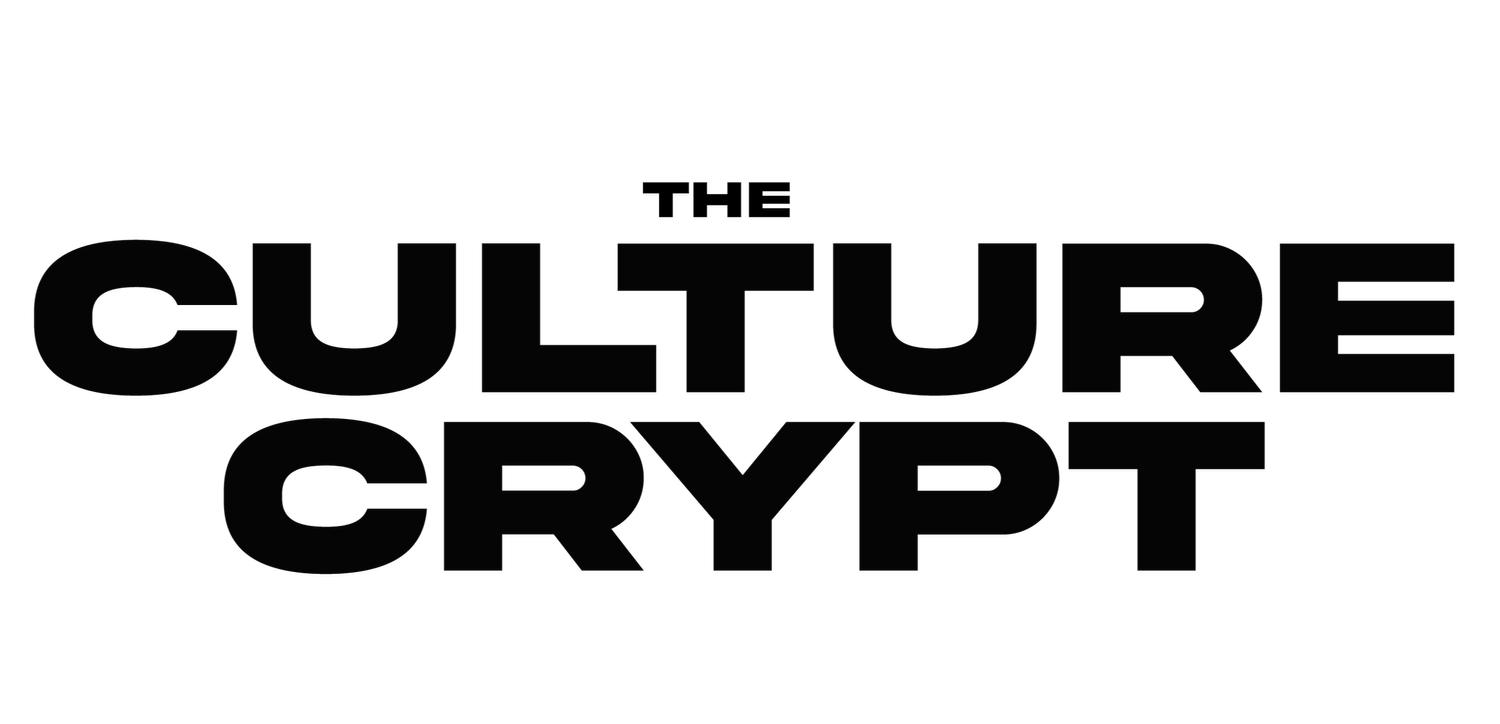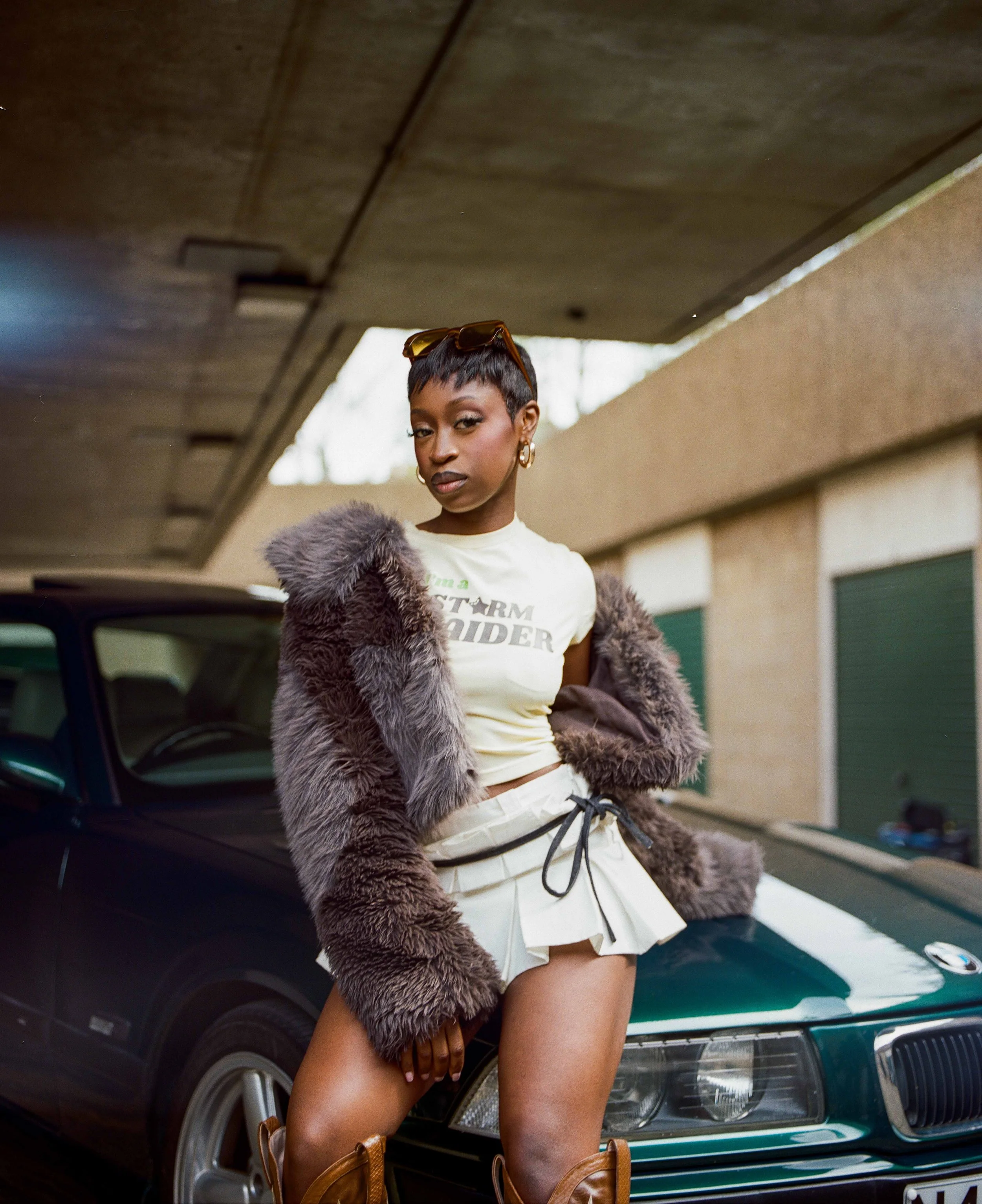Mnelia Reflects on the First Anniversary of 'Closure Tapes', UK R&B and Spotify's Riffs & Runs Campaign
In an exclusive tell-all interview powered by Spotify UK, ascendant North West London singer Mnelia reflects on her latest EP, artistic growth and much more.
R&B is an innately vulnerable style of music that aims to resonate with the listener's heartstrings first and foremost. Each lyric is an introspective mirror, ruminating over heartfelt emotions with full transparency. The timeless beauty of R&B is on full display in the UK, particularly on the exquisitely curated Riffs & Runs playlist—a curated collection of rhythm and blues for music lovers.
As Spotify hones in on all the sweet sounds of the UK R&B world, our stars are etching their emotions onto wax and connecting with listeners, reminding us why R&B remains timeless. From Sasha Keable's rich, retro tone on "Hold Up" to Mnelia's sultry new single "Heaven", the magic the UK is creating is only getting stronger with each passing day.
When it comes to UK R&B, singers like Jaz Karis, Shaé Universe, and Odeal have already been making their way onto people's playlists. However, North West London singer-songwriter Mnelia has been standing apart with her cult fanbase, capturing hearts and ears with her introspective lyrics and idyllic vocals—adding a syrupy, soulful sweetness to the mix. Her third EP, Closure Tapes, released last spring, is beautifully honest and emotional, showcasing her straight-to-the-point penmanship and narrative prowess.
Join us, in collaboration with Spotify, for an exclusive conversation with rising star Mnelia about her journey thus far.
The Culture Crypt: So, we have to talk about your breakthrough single, "Say Yeah", which you released four years ago now. What have you learned about yourself as an artist along the way, and how has your confidence in your sound evolved since "Say Yeah"?
Mnelia: "Okay, so what I've learned is that I'm a little bit more resilient than I thought I was. I didn't have that much faith in my fate before, but I've learned that I'm not as disheartened as I originally was. And I've learned that, truly, music is my love because there's nothing else that I would go this hard for. Like, outside of my loved ones, there's nothing else I'd give this much time, energy, and dedication to. I love music so much."
"It's been a journey. I'm the most confident I've ever been in my whole career. When I started making music, I was 17, and now I'm turning 26 this year—so it's almost been nine years since I started recording music, and in those nine years, you learn a lot about yourself; I've learned so much more about my music. I'm the most confident I've ever been, and it's just nice to make music and feel free."
R&B music makes listeners discern the emotions behind each song, almost like they're in the booth with the artist. Your vulnerability has always been one of your musical superpowers. Do you go into the booth intending to be emotive, or is it more of a happy accident?
"You know what? That's such an interesting take because I don't feel like I was vulnerable from the beginning. The songs might have always been vulnerable, but nobody said that was about me. A lot of the time, I used to write songs based on other people's situations around me. But the first time I truly felt like I was being vulnerable with my music was when I made my project, Closure Tapes.
That project was overwhelming because I'm so prone to escaping in my regular life that I would rather not deal with things head-on. But with Closure Tapes, I had to deal with all my emotions and look at them straight in the eye. It was a lot, but I don't regret it at all. I think that's where I adopted the attitude of 'okay, now I'm doing my R&B thing' because now I'm actually writing songs about how I'm feeling and what I'm going through. I didn't have that tool in my kit before I made Closure Tapes."
How did the "Genesis (Remix)" with Miraa May, Joyce Wrice, and Bellah come about?
"I feel like it was a series of fantastic thought processes. Initially, we had 'Genesis,' one of the last songs made for the tape. My team, especially my manager, asked how we could make this song bigger than life. The 'Genesis (Remix)' emphasised the importance of collaboration. We thought, who do I love and want on this song? Let's build a world around the concept of moving on and evolving as a woman. The only people I could call upon were Bellah, Miraa May, and Joyce Wrice. They've been my confidants in real life and have been there for everything I talk about on the tape, so it made perfect sense."
“My project felt like a journey through therapy. It felt like every single therapy session I had about my relationship was just turned into songs. It was very real and difficult at times. But then I also feel like Mnelia needed it for the world to understand that she’s more than just a ‘Say Yeah’ girl. She can give us more, she can give us depth, she can give us emotions, she can be real with us, she can look at us eye-to-eye and relate, and I think that was really important for me because I did feel a bit alienated for a while. But it’s beautiful finding yourself again.”
Talk to us about some of the most standout moments from your career so far.
"Definitely 'Say Yeah'—everything happened at the right time. I'd quit my job and needed this music thing needed to go well. Thankfully, it did. Since then, I've only done music. In 2020, I had my child, which was pivotal for my mental stability. It showed me I could keep pushing and keep going. Wireless Festival was also a big moment. But the most important moment so far was my first headline show. It cemented that I can do this and that some people want to see this scene and culture thrive. They wanted to see me succeed, and that meant so much. It was a beautiful moment to give people an experience beyond just listening and streaming. I love being in front of people, so that was amazing."
We have to talk about your latest single, "Heaven", which has some stunning visuals. You likened "Heaven" to emerging from the process of healing. Is this the start of a new era for you?
"Oh, hell yeah. This time around, she's braver and she's bolder. She doesn't care as much—she's outside. I feel like I am literally becoming the person that I thought I wasn't capable of being. It's womanly, and it's liberating. Every single time you evolve into the next step, you surprise yourself. I'm far more willing to tell the truth, be confident and speak my mind inside and outside music."
Who are some underrated UK R&B gems?
"Before we dive into who's underrated, there are some names that if you don't know, you better run [laughs]. That's my Bellah, my Jvck James, and my Shaé Universe. I can go on—Tiana Major9, Elmiene, and Jaz Karis—there's so much underrated talent in UK R&B, even among artists I believe everyone should know. But in terms of who's really, really underrated? That's Sipprell, she's my favorite artist in this country, no joke. I love her so much. I think she's so slept on, and everyone needs to wake up."
Do you feel like R&B has evolved since you started it, and how does the newer generation approach it?
"It has definitely evolved. It's complex because it depends on how you view it and the timeline you consider. If we compare it to when Ashanti and others were prominent versus now, then it's certainly evolved. R&B has become more self-centred, with emotions taking centre stage. While it used to revolve heavily around love and relationships, it's now more about sentiments, feelings, and thoughts. In the UK, it's also nuanced."
That's cool. How do you view R&B amongst your UK peers specifically?
"We have the OGs like Jamelia, Craig David, and Lamar, followed by a middle group including myself, Bellah, and Jaz Karis. Then there's a younger emerging group. Genres are becoming less rigid. Also, distribution methods are changing. The younger generation relies more on platforms like TikTok, with live performances less prioritised. This shift influences the music itself; some songs are sped-up, while others, like Victoria Monét's, embrace orchestral arrangements.
Now, music has just become a thing where it's like a pick-and-mix. You go where you want to grab what you desire, and that's literally it. It's changed so much for the better. And I know that sometimes artists feel pressure to say stuff like that, but I genuinely believe that because now I feel like it's a genre for all, whereas before, it would have been for the lovers and stuff. But you don't have to listen to a love-heartbreak type of song to enjoy an R&B artist from 2024."
Yeah, I feel like R&B has evolved, but the main sentiment of it remains.
"Yeah, for the most part, it will always be the genre of love. They can try to shake us but won't change that."
Lastly, what's next for you?
"Expect the unexpected. Like I said, she's bold, she's brave, she's confident, and she's here."
Stream Riff & Runs on Spotify below:


